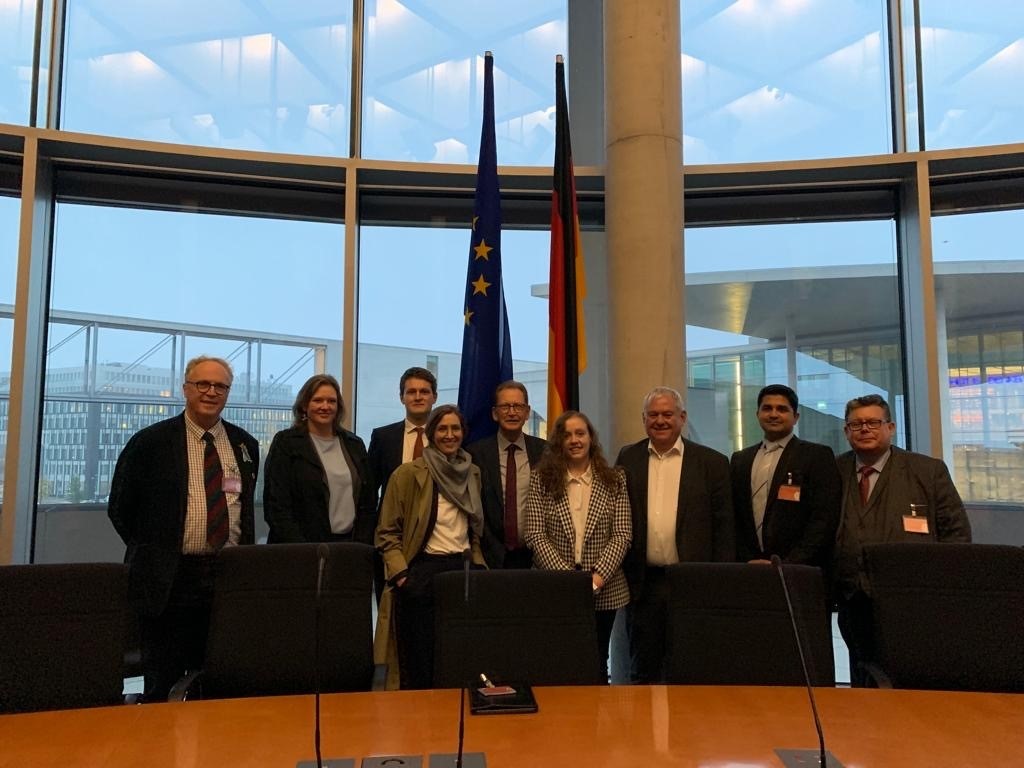economy
Sustainability - The Way Forward for UK-German Relations

The consequences of Brexit are unfolding. Crises throughout various policy fields are intensifying, especially in the UK, but also in the EU. The areas of concern for both the UK and the EU include, among others, military co-operation, particularly vis-à-vis Ukraine, where the UK has played a leading role in training and arms supply and energy provision, where significant two-way flows of electricity and gas define the trading relationship.
With the global power balance shifting more than it ever since has in the last seventy years, solidarity and strong partnership on the European continent and between liberal allies has never been as important as it is now. Although no longer united through shared membership of the European Union, the ties between Great Britain and Germany remain close. Economic and political partnership between both countries is not only highly important for both of them on their own, but also has a significant impact at the European level.
During his visit in Berlin this week, we talked with Sir Graham Watson about the post-Brexit security cooperation between the UK and the EU in the light of Russia’s war against Ukraine, finding an answer to soaring energy prices and the way ahead for UK-Germany relations.
Friedrich-Naumann-Foundation for Freedom: Russia’s war in Ukraine is pushing the UK and EU to shape a strong joint response to Russia’s threats to pan-European security, despite the disruption in the European security arrangements and defence cooperation caused by Brexit. How should the future, post-Brexit cooperation between the EU and the UK on foreign, security and defence policy look like?
Sir Graham Watson: The 2018 German-UK ‘Joint Vision statement’ on defence co-operation and the announcement that a UK military presence will remain in Germany after 2020 provide a basis for continued co-operation at a time when the military threat on Europe’s continent has grown. The UK German Ministerial Council on Defence and the co-operation between airforce bases has built on that. The recent creation of a joint UK-German defence force is a welcome development. In areas ranging from countering cyber warfare to policing the skies over the Baltic countries, military co-operation between our two countries has grown substantially. There is scope for further development in bilateral co-operation, though the primary forum for co-operation in the field of defence should remain NATO.
The recent establishment in Prague of a new European Political Community at President Macron’s initiative might provide a further framework for co-operation in strategic areas related to common defence, though one wonders why the Council of Europe, already well established and headquartered in France, was not used for this purpose.
According to the International Monetary Fund (IMF), the UK has been hit particularly hard by the energy crisis and is struggling more than most of Europe. What are the possible solutions that are currently being discussed to tackle the energy crisis and reduce energy dependencies?
The UK and Germany are both suffering from high rates of inflation. In the UK much of the cause of this inflation has been the hike in energy prices. Germany has however been hit harder by the disruption in supplies of Russian gas. Both countries have done well in recent years in exploiting potential for renewable energy resources, particularly in wind and solar power; green hydrogen also offers potential for co-operation; and Siemens’ purchase of the UK company Marine Current Turbines strengthens co-operation in the field of tidal and ocean current energy. Much more will need to be done to switch energy production from fossil fuels to renewables, however, both to reduce dependency on Russia and to meet our climate commitments. This poses a challenge we face in common and may provide opportunities for joint investment.
During your visit in political Berlin you had an opportunity to explore and discuss the possibilities of economic cooperation, joint energy solutions, and collaboration in innovation and science projects between the UK and Germany. What were your key takeaways from those discussions and what role do liberals on both sides of the channel play?
One of the tragedies of Brexit has been the significant drop in trade between the UK and Germany, particularly where SMEs are concerned. This will take time and ingenuity to rebuild. Trade in services still provides scope for greater ties, however, and if the UK is allowed back into the EU’s Horizon programme of scientific co-operation we may again see a flowering of of co-peration in R&D. Recognising that the benefits of trade stretch far beyond mutual self enrichment, Liberals in both countries must press for continued effort in the establishment of economic ties.
In the energy sector, Liberals have provided much of the political drive for the developments mentioned in my answer to your second question. While the FDP has moved from dismissing renewables as ‘Grüne Sache’ to appreciating the advantage they bring in keeping the country competitive, so UK Liberal Democrats have moved to a position where they recognise that nuclear power, while expensive, will remain important for some years to come as a technology to assist in the transition from fossil fuels. So both parties have become less dogmatic on energy solutions and more aware of the climate imperative.
Sir Graham Watson is a British Liberal Democrat politician who served as an MEP from 1994 to 2014. He led the European Parliament’s Liberal Group from 2002 to 2009 and was president the ALDE Party from 2001 to 2015.
